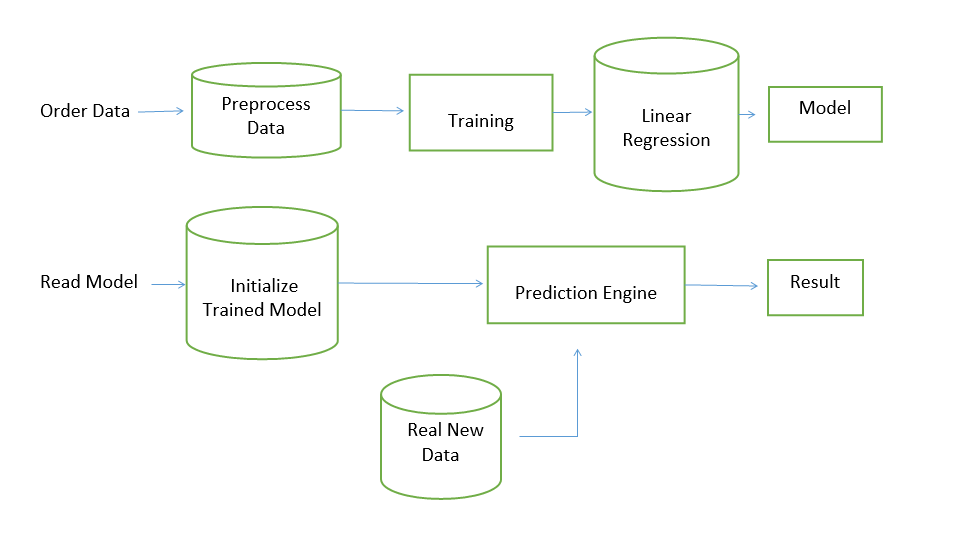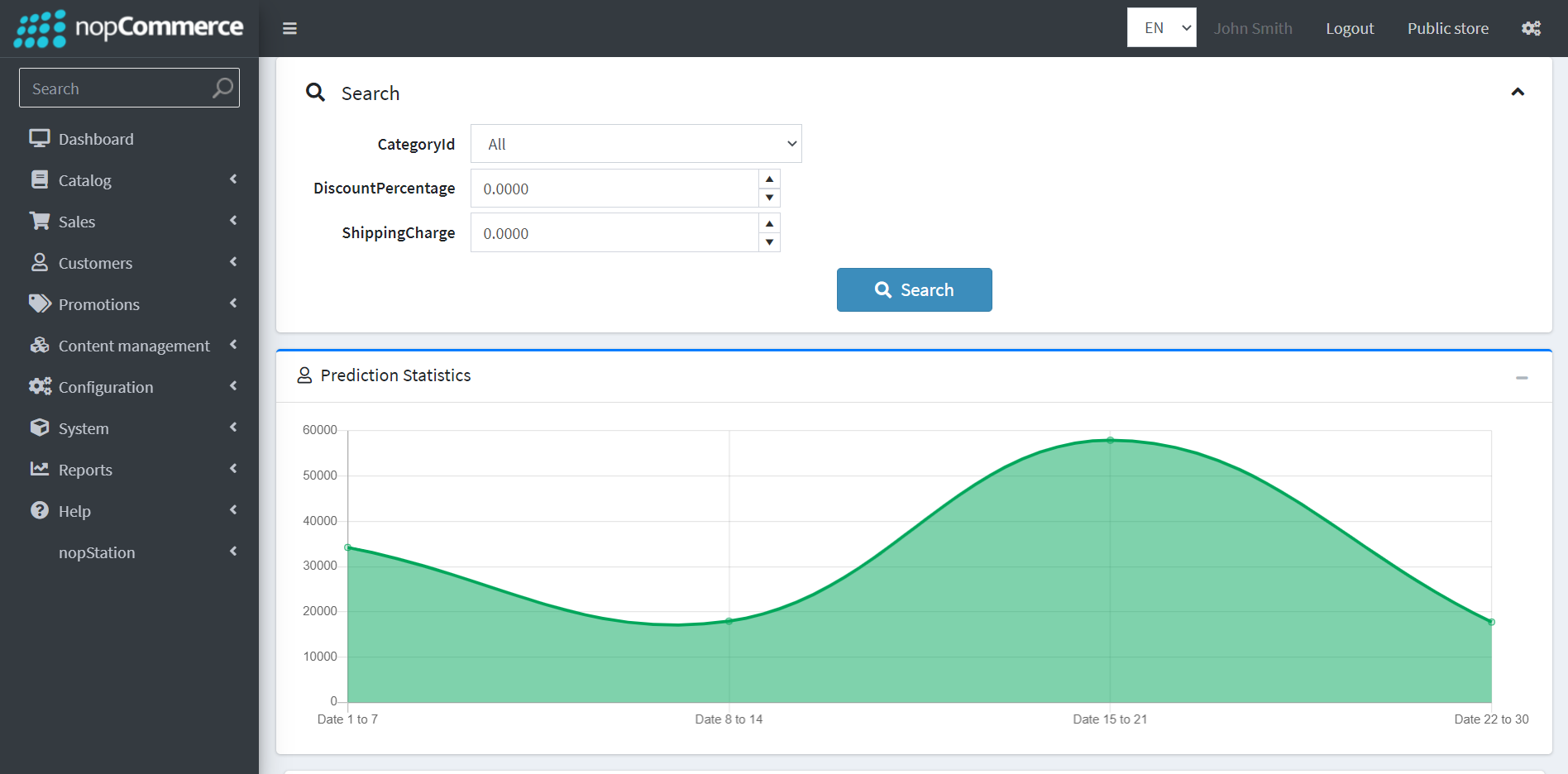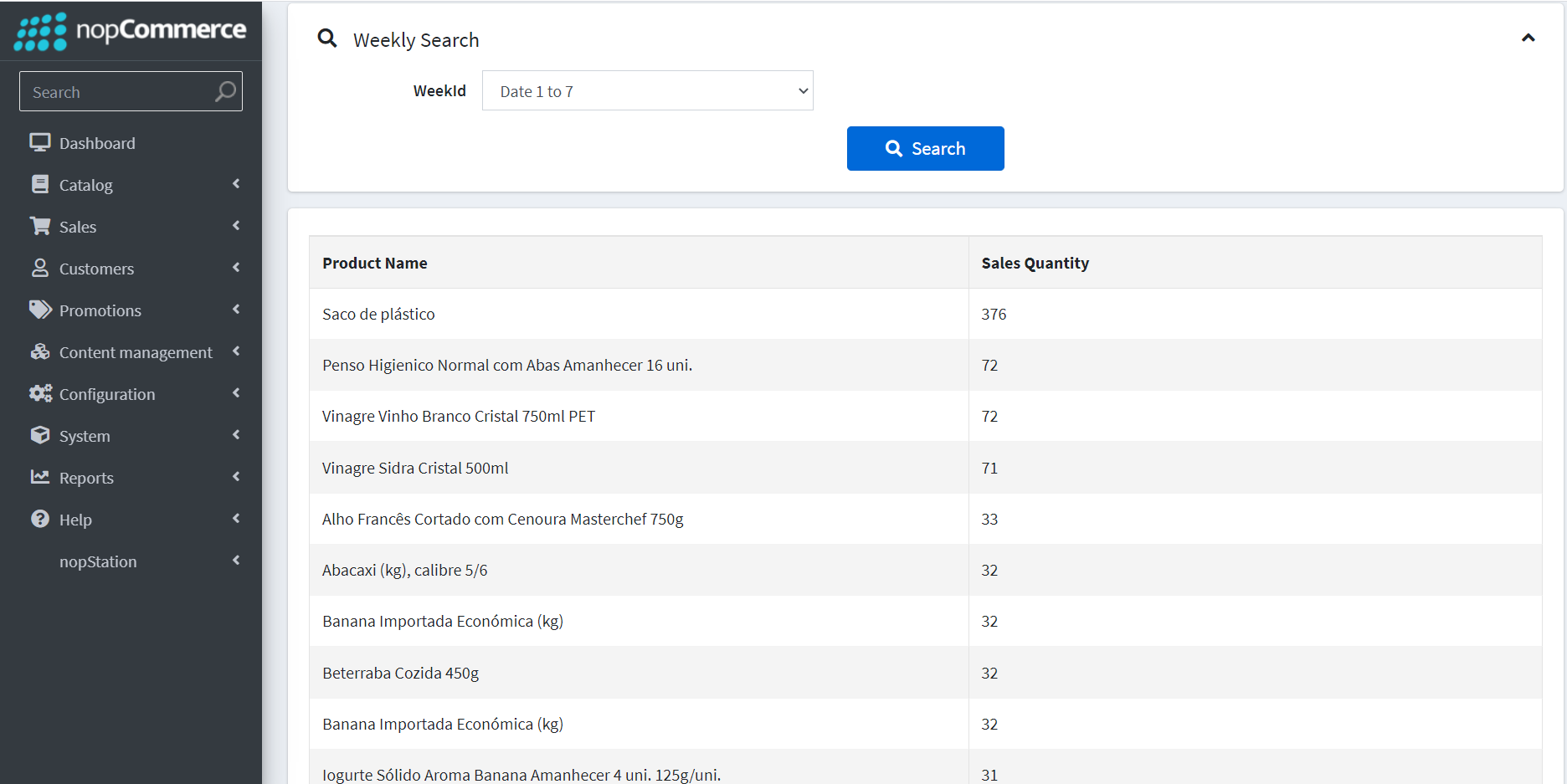Machine learning (ML) is a type of Computational Intelligence (CI) that allows software applications to become more accurate at predicting outcomes without being explicitly programmed to do so. Machine learning algorithms use historical data as input to predict new output values. Linear regression is one of the popular Machine Learning algorithms. It is a statistical method that is used for predictive analysis. Linear regression makes predictions for continuous/ real or numeric variables such as sales, salary, age, product price, etc. In this experiment, we employed a linear regression algorithm to predict nopCommerce product demand.
As we want to predict demand from historical data, we choose nopCommerce where we easily get it. nopCommerce is an open-source eCommerce platform that has various features for an eCommerce site. Inside any eCommerce solution orders and products, features are most important. For preparing the training model, the dataset is taken from orders, order-Item, and product table from the nopCommerce Database. More than 3, 000 orders and more than 10, 000 and 18, 000 products datasets are pre-processed to train the model.
To implement a machine learning algorithm, we use ML.Net and ML.FastTree. After training the ML model, we saved it to the plugin folder. After this, we load the trained model when we predict from nopCommerce real data.
Below, I have shared the working procedure of our proposed model and the user interface of the prediction result.



As we want to predict demand from historical data, we choose nopCommerce where we easily get it. nopCommerce is an open-source eCommerce platform that has various features for an eCommerce site. Inside any eCommerce solution orders and products, features are most important. For preparing the training model, the dataset is taken from orders, order-Item, and product table from the nopCommerce Database. More than 3, 000 orders and more than 10, 000 and 18, 000 products datasets are pre-processed to train the model.
To implement a machine learning algorithm, we use ML.Net and ML.FastTree. After training the ML model, we saved it to the plugin folder. After this, we load the trained model when we predict from nopCommerce real data.
Below, I have shared the working procedure of our proposed model and the user interface of the prediction result.


Hi,
That's a great attempt to explain what Predictive Analytics is and I'd point out that, "Real-life data doesn’t usually point so clearly to an obvious conclusion. For example, if buyer behavior is erratic or seasonal, or if instead of one product you’re dealing with hundreds." Therefore, sorry but IMHO you have not provided any information, and without the accuracy of the description and analysis of data sets, all your posts are fiction in the terms of ML.
Anyway, wish you the best in your endeavors.